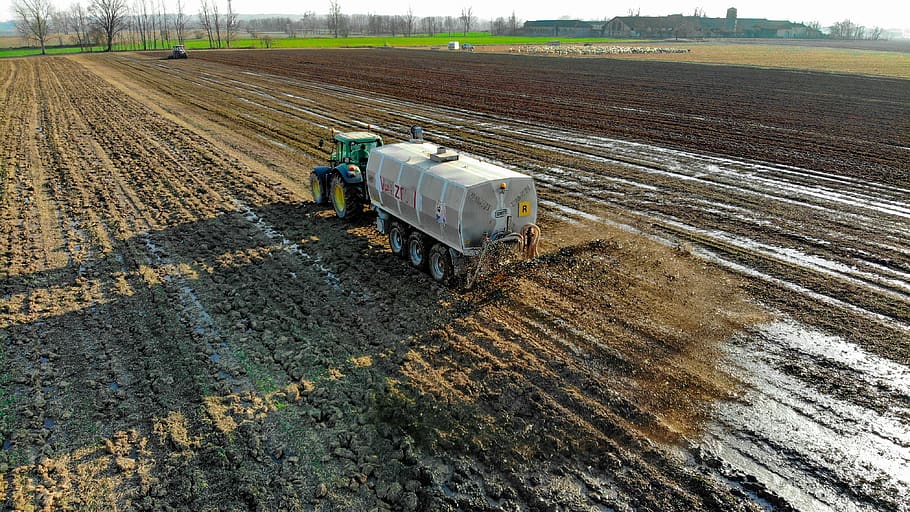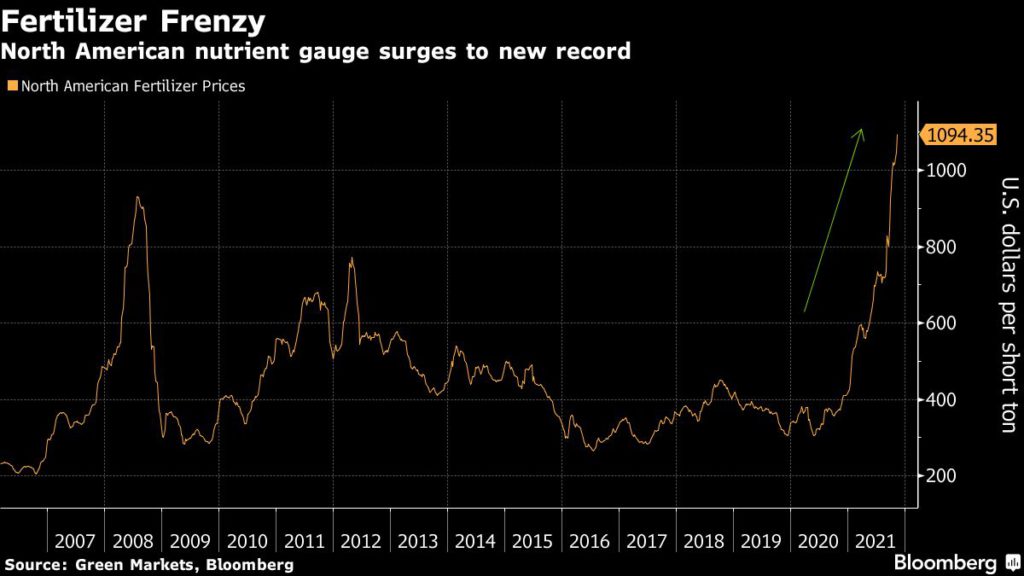Fertilizer prices rocket to all-time high on tightening supplies

Fertilizer prices keep soaring to unprecedented heights, signaling escalating costs for farmers and consumers around the world.
The Green Markets North American Fertilizer Price Index rose 4.4% to $1,094.35 per short ton on Friday, surpassing a record set a week earlier. Prices for New Orleans urea, a popular nitrogen fertilizer, jumped 8.3% to $812 per short ton as major producer CF Industries Holdings Inc. warned of continued shortages.
Crop-nutrient prices have been soaring as an energy pinch in Europe makes natural gas, the main feedstock for most nitrogen fertilizer, more costly. China and Russia are restricting nutrient exports to ensure sufficient domestic supplies. U.S. consumers already are seeing the steepest inflation since 1990.

The U.S. is a major importer of farm nutrients, sourcing 20% of its urea and 40% of its ammonium nitrate from Russia alone.
Crop markets from grains to coffee are getting a boost from the fertilizer rally as traders brace for potential supply shortages, with the surging input costs threatening to curb yields across the board.
As fertilizer and other input costs rise, Bloomberg’s Green Markets anticipates American farmers next year will switch 2.5 million acres from corn to soybeans, which is less fertilizer-intensive.
“Warning signs on demand are growing as farmers are unable or unwilling to absorb ammonia’s 65% increase in value since September,” Green Markets analyst Alexis Maxwell said in a note.
(By Elizabeth Elkin)
{{ commodity.name }}
{{ post.title }}
{{ post.date }}




Comments
Matt.
Time to look at alternatives like Korean natural farming inputs, which are available naturally around all farmlands, other organic means to grow like composting, chop and drop, spreading local cow and sheep manure over fields, fertilizing with our own compost, there are much cheaper methods to grow and much cleaner for the environment and healthier for us to eat. We have farmed for thousands of years using natural methods untill synthetic fertilizer came around like the 1940s. Since the use of synthetic fertilizer cancers have sky rocked our soils have been destroyed and our waters polluted etc.. Its time we go back to natural organic ways to grow food, done right yeilds are as good or better.